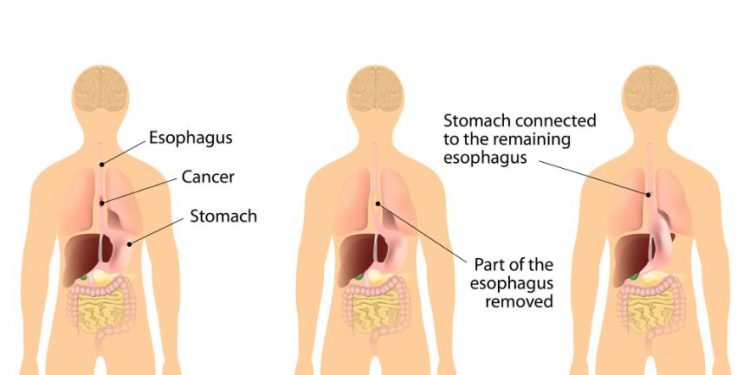The esophagus is a foot-long, hollow muscular tube that carries food and liquid from the back of your throat to the stomach for digestion. The esophagus contains glandular cells that secrete mucus to lubricate the passage of food. Adenocarcinoma cancer starts in these cells and may spread to other tissues and organs.
Most people with esophageal adenocarcinoma have no symptoms in the early stages of the disease. This is why it is important to get regular checkups. If you have symptoms, such as trouble swallowing or a feeling that food is stuck in your throat, see your doctor right away.
If your cancer is at an early stage, you might be able to avoid surgery and receive chemotherapy instead. This type of treatment can help control your symptoms and improve your chances of survival.
Your doctor will recommend a specific treatment plan based on the type and stage of your esophageal cancer, your general health, and what you want to do about your care. You and your doctor should discuss the goals of treatment and possible side effects of each option. This is called shared decision-making and it is an important part of your care.

Doctors treat esophageal adenocarcinoma by using radiation therapy, chemotherapy, and sometimes surgery. For cancer that has not spread beyond the esophagus and nearby lymph nodes, surgical resection (removal of the affected tissue) is often the best option. Radiation and chemotherapy can be given before surgery to reduce the size of the tumor or to improve your chance of a good outcome after surgery.
Chemotherapy uses drugs to kill cancer cells or prevent them from growing. It can be given by mouth or injected into a vein or muscle. It can also be given along with radiation to increase its effectiveness.
Trastuzumab deruxtecan is a targeted therapy that works by blocking the action of a protein called HER2. This type of drug is used in combination with other chemotherapy agents and in place of paclitaxel in some patients with HER2-positive metastatic esophageal adenocarcinoma.
Clinical trials are research studies that test new ways to treat a disease. Your doctor might suggest that you participate in a clinical trial to learn about other treatments for esophageal adenocarcinoma. If you decide to enroll in a clinical trial, your doctor will explain the study in detail and help you understand what to expect.









